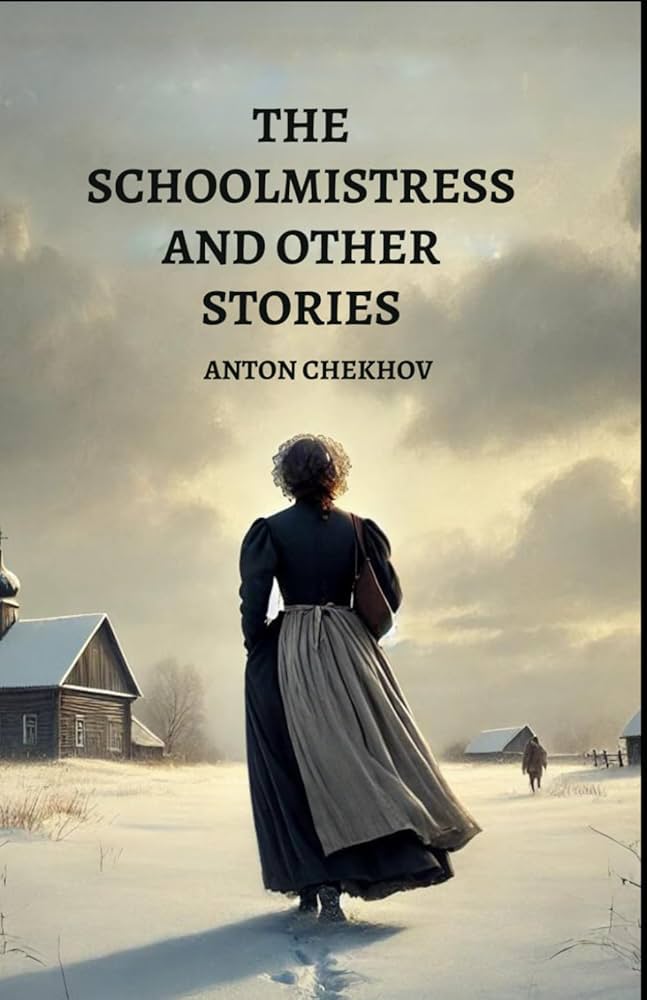THE HEAD-GARDENER’S STORY
byThe Head-Gardener’s Story begins in a quiet greenhouse on a gentle April morning, where an auction draws together a few gentlemen amid a sea of fresh blooms. A timber merchant, a nobleman, and the narrator exchange remarks about plants, legal matters, and society. Amid them stands Mihail Karlovitch, the self-assured and somewhat eccentric gardener who, though alone in his post, refers to himself with pride as the head of a nonexistent staff. He listens with a quiet eagerness, hoping someone might share something thoughtful or literary, particularly about writers like Ibsen. His sense of dignity, paired with his belief in his own refinement, sets him apart from the casual tone of the others. The conversation takes a turn when someone brings up a recent court case in which a clearly guilty man was released. The merchant decries this leniency, blaming it for eroding morality and encouraging wrongdoing. But Karlovitch disagrees, seeing compassion in such outcomes.
Mihail, with his calm tone, offers a memory passed down from his grandmother—a tale of goodness nearly divine in its simplicity. She spoke of a doctor, a man who never charged for his care, always helped the needy, and never showed anger or resentment, no matter the situation. He lived simply and moved freely, respected by all, including those on the wrong side of the law. Despite his generosity, the doctor eventually met a grim fate—murdered, to the shock of the entire town. The community couldn’t believe it. They struggled to accept that anyone could commit such a crime against a man so purely good. For a time, no one would even say the word “murder,” convinced he must have simply fallen or died by accident, unable to reconcile such violence with their view of him and their world.
Yet the story deepens when undeniable proof arises pointing to a notorious thief. Even with evidence, the townspeople resist the truth. They argue, stall, and dismiss, preferring their illusion of goodness over the uncomfortable reality of betrayal. The gardener describes the trial not as a pursuit of justice, but as a shared act of denial. Witnesses contradict themselves. Others recall only the best about the accused. The town had invested so deeply in its belief in goodness that it couldn’t withstand the presence of evil. What results is not just a miscarriage of justice, but a communal reimagining of truth to fit their ideal world. This outcome, though tragic, also paints a vivid portrait of the human desire to see what we wish to see.
The tale subtly raises a question: is it worse to deny evil or to accept it as part of life? Mihail’s perspective isn’t naïve, but hopeful—he sees value in striving for belief in goodness, even when it clashes with reality. Though his companions scoff at this optimism, his voice lingers. He doesn’t argue to free the guilty, but rather to preserve a worldview in which compassion matters more than punishment. In this way, the gardener’s story becomes more than a curious memory; it’s a philosophical reflection on how society responds to moral contradiction. His tale challenges readers to consider how much of what we believe about right and wrong is shaped not by facts, but by what we hope to be true.
In everyday life, similar choices appear—not in grand trials, but in how we interpret the actions of others, how we judge motives, and how we balance skepticism with generosity. This parable-like story from Mihail is more than just about a murder and a verdict; it’s about the collective soul of a community and the stories people tell themselves to maintain harmony. The refusal to condemn, while misguided, stemmed not from ignorance, but from a longing for moral coherence. It shows how deeply people want to believe in the possibility of a just and kind world, even if it means denying evidence to protect that vision.
Ultimately, The Head-Gardener’s Story leaves readers with no easy answers, only questions to carry forward. Can justice and mercy coexist in a world that contains both saints and sinners? Should society cling to ideals, even when they blind us? Or must we face the full complexity of human nature—its brilliance and its brutality—with open eyes and steady hearts? The story encourages us to reflect, not just on the gardener’s tale, but on our own instincts when truth and belief come into conflict.

